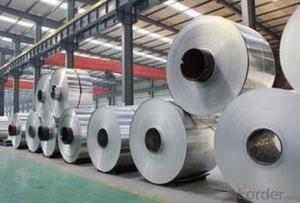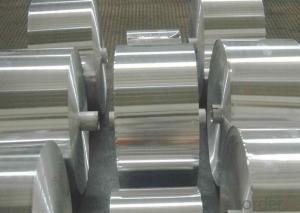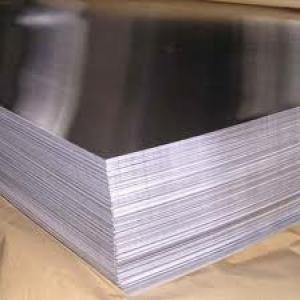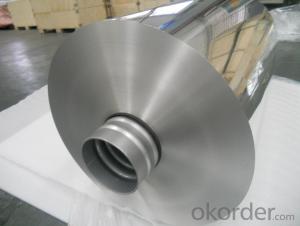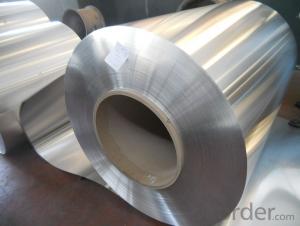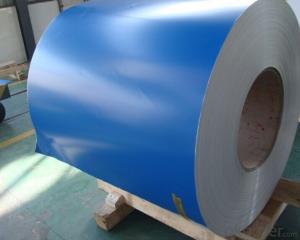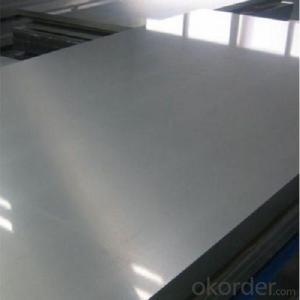Aluminum Coil for ACP Production Export to India
- Loading Port:
- Shanghai
- Payment Terms:
- TT OR LC
- Min Order Qty:
- 1 m.t.
- Supply Capability:
- 2000 m.t./month
OKorder Service Pledge
OKorder Financial Service
You Might Also Like
Item specifice
Structure of Prepainted Aluminium Coil PPGL Description:
1)air plane, refrigerators ,audio equipment
2)building material: ceilings, walls
3)telephones, digital cameras
4) plastic composite board,aluminum and plastic pipe
Main Features of Aluminium Coil PPGL:
Mainly in Construction, decoration, PCB materials, cover material, LCD back panel, refrigeration, air conditioner, automobile, etc
Images of Aluminium Coil PPGL:
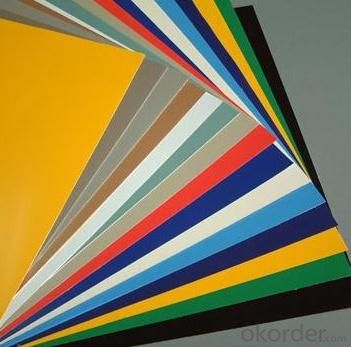
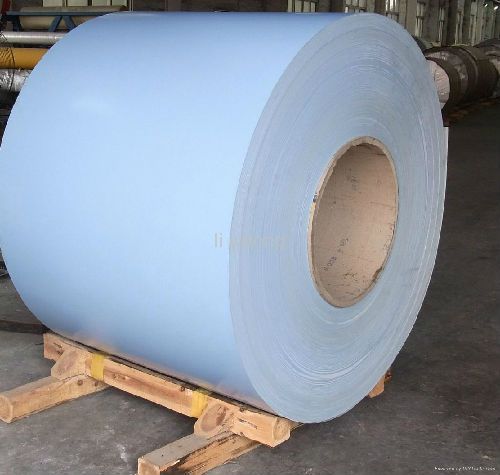
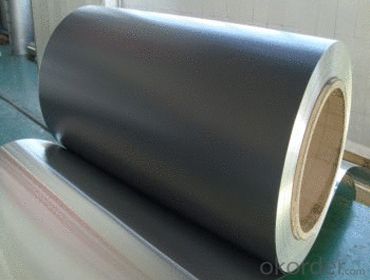
Aluminium Coil PPGL Specification:
Product Name | Aluminum Coil |
Alloy | A1100,A3003,A1050,A8011,A3105,A5005 etc |
Thickness | 0.022mm to 3.0 mm |
Width | Standard width:1240mm; 1200mm |
All width: 30mm - 1600mm | |
Diameter | out dia:1200mm |
Interior dia: 405mm,505mm | |
Weight | 2.5 T/coil,3.0 T/coil |
Coating | PE,PVDF,ACRYLIC |
Surface | Embossed, mill finish, coated; aluminum gutter coil |
Color | AS to all RAL color |
Gloss | 10-90%(EN ISO-2813:1994) |
Coating Thickness | PE: more than 18 micron |
PVDF: more than 25 micron | |
Coating Hardness (pencil resistance) | More than 2h |
Coating adhesion | 5J(EN ISO-2409:1994) |
Impact Resistance | No peeling or cracking(50 kg/cm,ASTMD-2794:1993) |
Flexibility (T-bend) | 2T |
MEK resistance | More than 100 |
FAQ of Aluminium Coil PPGL:
1.Superior quality of raw material.
2.Reasonable and stable chemical composition.
3.Accurate tolerance.
4.Goode mechanical property.
5.We have the certificate of ISO9001.
- Q:What are the typical thickness options for aluminum sheets?
- Depending on the specific application and industry requirements, the thickness options for aluminum sheets vary. However, a range of thicknesses is commonly available for aluminum sheets. Some of the most frequently used thickness options include 0.025 inches (0.635 mm), 0.032 inches (0.81 mm), 0.040 inches (1.02 mm), 0.050 inches (1.27 mm), 0.063 inches (1.6 mm), 0.080 inches (2.03 mm), and 0.125 inches (3.18 mm). These thicknesses are widely utilized in industries such as aerospace, automotive, construction, and manufacturing. It's important to note that specialty aluminum sheets may offer even thicker options, tailored to the specific requirements of a given project.
- Q:Need to polish some small aluminum tubing, preferably to chrome like shine. What tools do I need? Thinking about buying 6 bench grinder, buffing? wheels and polish compound... Does it sound about right?
- Aluminum oxidizes almost instantly, so it is never going to keep a good shine. You can send it to a plating shop and they will anodize it, which means a permanent oxidized layer and that may or may not retain some shine but at least it won't ever change much. (But it is easily stained.) Consider plating some other metal on the surface. You will need advice from a plating shop about that. Maybe you could use chrome plated water pipe? That would be cheaper than a custom job.
- Q:Do 101 aluminum sheets have any specific fire resistance properties?
- No, 101 aluminum sheets do not have any specific fire resistance properties.
- Q:What are the surface treatment requirements for aluminum sheets in the food industry?
- In the food industry, aluminum sheets are commonly used due to their excellent corrosion resistance and lightweight properties. However, certain surface treatment requirements need to be met to ensure the safety and quality of the food products. Firstly, aluminum sheets used in the food industry should undergo a cleaning process to remove any impurities or contaminants. This can be achieved through various methods such as chemical cleaning, alkaline cleaning, or mechanical cleaning. The purpose is to eliminate any potential sources of contamination that could affect the food's taste, odor, or safety. Furthermore, the surface of the aluminum sheets should be properly finished to prevent any interactions between the metal and the food. Anodizing is a popular surface treatment method, which creates a protective oxide layer on the aluminum surface. This layer not only enhances corrosion resistance but also provides a barrier against any potential migration of aluminum ions into the food. Additionally, it is crucial to ensure that the surface treatment materials used are food-grade and compliant with relevant regulations. The food industry has specific guidelines and standards in place to ensure the safety and suitability of materials that come into contact with food. Therefore, the surface treatment process should adhere to these standards to prevent any health hazards or contamination risks. Regular inspection and maintenance of the surface treatment are also necessary to guarantee its effectiveness over time. This includes monitoring the integrity of the protective layer, identifying any signs of wear or damage, and taking appropriate actions to address them promptly. In summary, the surface treatment requirements for aluminum sheets in the food industry include thorough cleaning, proper finishing, the use of food-grade materials, and regular maintenance. These measures are crucial to ensure the safety and quality of the food products and to comply with industry regulations and standards.
- Q:I am doing a report on machining aluminum and characteristics of aluminum and can not find what the 6061 stock stands for. Looked all over library, internet, etc.
- The spec for 6061 aluminium, can be found on this link - 66.102.9.104/search?q=cache:ALU5S...
- Q:Can aluminum sheets be used for chemical reactors?
- Certain applications allow for the use of aluminum sheets in chemical reactors. Aluminum possesses excellent corrosion resistance, rendering it appropriate for diverse chemical reactions. Nevertheless, it is crucial to take into account the nature of the chemicals employed and their potential reactivity with aluminum. In highly acidic or alkaline environments, aluminum's reactivity and susceptibility to corrosion should be duly recognized. Furthermore, specific gases or elevated temperatures may render aluminum unsuitable for reactions. In such instances, alternative materials such as stainless steel or glass-lined reactors might prove more fitting.
- Q:Are 101 aluminum sheets easy to work with in terms of cutting, drilling, and shaping?
- Yes, 101 aluminum sheets are generally easy to work with in terms of cutting, drilling, and shaping. Aluminum is known for its lightweight and malleable properties, making it more manageable compared to other metals. The 101 aluminum alloy specifically offers good formability and weldability, making it suitable for various fabrication processes. When it comes to cutting, aluminum sheets can be easily cut using common tools such as a saw, shears, or even a simple utility knife. Similarly, drilling holes in aluminum sheets is relatively easy and can be done with standard drill bits. Lastly, shaping aluminum sheets can be achieved through bending, folding, or using specialized tools like a brake press. However, it's always important to use appropriate safety measures and equipment when working with any metal, including aluminum.
- Q:Consider an aluminum wire of diameter 0.580 mm and length 28.0 m. The resistivity of aluminum at 20.0°C is 2.82 10-8 Ω · m.(a) Find the resistance of this wire at 20.0°C. ___________Ω(b) If a 9.00-V battery is connected across the ends of the wire, find the current in the wire. __________A
- Aluminum has a resistivity of 2.65 x 10^-8. But I will use your figure of 2.82 x 10^-8. R = ρL/A where ρ = resistivity = 2.82 10-8 Ω · m, L = Length = 28 meters, A = Area =( .58mm/2)^2 x pi = 0.26 mm^2, or 2.6 x 10^-7 m^2 R= (2.82 x 10^-8)(28)/2.6 x 10^-7 = 3.03 ohms I=V/R = 9/3.03 = 2.97 amps
- Q:Are 101 aluminum sheets resistant to corrosion?
- Yes, 101 aluminum sheets are resistant to corrosion due to the presence of a protective oxide layer on their surface, which helps prevent the metal from reacting with its environment.
- Q:Are aluminum sheets suitable for high-pressure environments?
- No, aluminum sheets are generally not suitable for high-pressure environments as they have low tensile strength and are prone to buckling or deforming under high pressure.
1. Manufacturer Overview |
|
|---|---|
| Location | |
| Year Established | |
| Annual Output Value | |
| Main Markets | |
| Company Certifications | |
2. Manufacturer Certificates |
|
|---|---|
| a) Certification Name | |
| Range | |
| Reference | |
| Validity Period | |
3. Manufacturer Capability |
|
|---|---|
| a)Trade Capacity | |
| Nearest Port | |
| Export Percentage | |
| No.of Employees in Trade Department | |
| Language Spoken: | |
| b)Factory Information | |
| Factory Size: | |
| No. of Production Lines | |
| Contract Manufacturing | |
| Product Price Range | |
Send your message to us
Aluminum Coil for ACP Production Export to India
- Loading Port:
- Shanghai
- Payment Terms:
- TT OR LC
- Min Order Qty:
- 1 m.t.
- Supply Capability:
- 2000 m.t./month
OKorder Service Pledge
OKorder Financial Service
Similar products
New products
Hot products
Hot Searches
Related keywords
